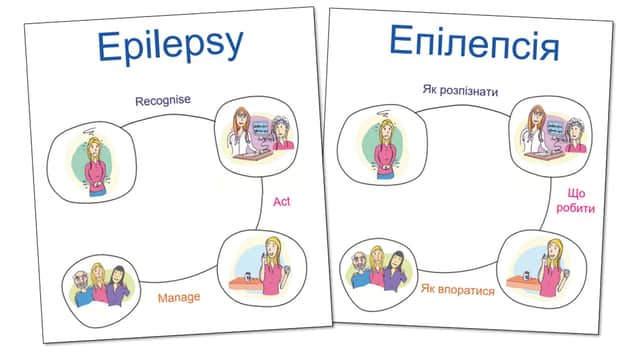NHSGGC at centre of international effort to provide epilepsy support for Ukrainians fleeing war


Epipicto is a pictorial guide to epilepsy first produced in 2019.
An initiative involving teams across Europe and funded by Erasmus+, it is a free downloadable resource, with a target audience of adults with low levels of literacy and migrants/refugees arriving in European countries with little knowledge of the local language.
Advertisement
Hide AdAdvertisement
Hide AdIt is being widely used in these settings, and a number of colleges in Scotland use it to help students with additional support needs.
Epipicto had originally been translated into Dutch, English, French, German, Maltese and Spanish, but last month it was decided to create Ukrainian and Polish versions.
NHSGGC, through its partnership with Glasgow-based epilepsy support charity Epilepsy Connections, has funded the translations, and the new resource is already in use with refugees in Poland and Germany. It will also be an important additional support for Ukrainian people who come to live in the UK.
Craig Broadfoot, general manager for Neurosciences at NHSGGC, said: “We are delighted to have been involved in the Epipicto project, and when the translations into Ukrainian and Polish were suggested, we were happy to fund the work.
Advertisement
Hide AdAdvertisement
Hide Ad“People fleeing Ukraine need all the support we can give them, and these new Epipicto resources are a simple but important support for people living with epilepsy who have been forced to flee their homes.
“I would like to thank everyone in NHSGGC and our colleagues in Epilepsy Connections who have helped turn this around so quickly.”
The purpose of the guide is not to provide detailed information but to help start conversations about epilepsy and support people to find the support they need to live well.
Topics include: dispelling myths about epilepsy, types of seizures, diagnosis, medication and treatment options, epilepsy first aid, how to try to reduce seizure frequency, how to deal better with seizures, and information for families and friends.